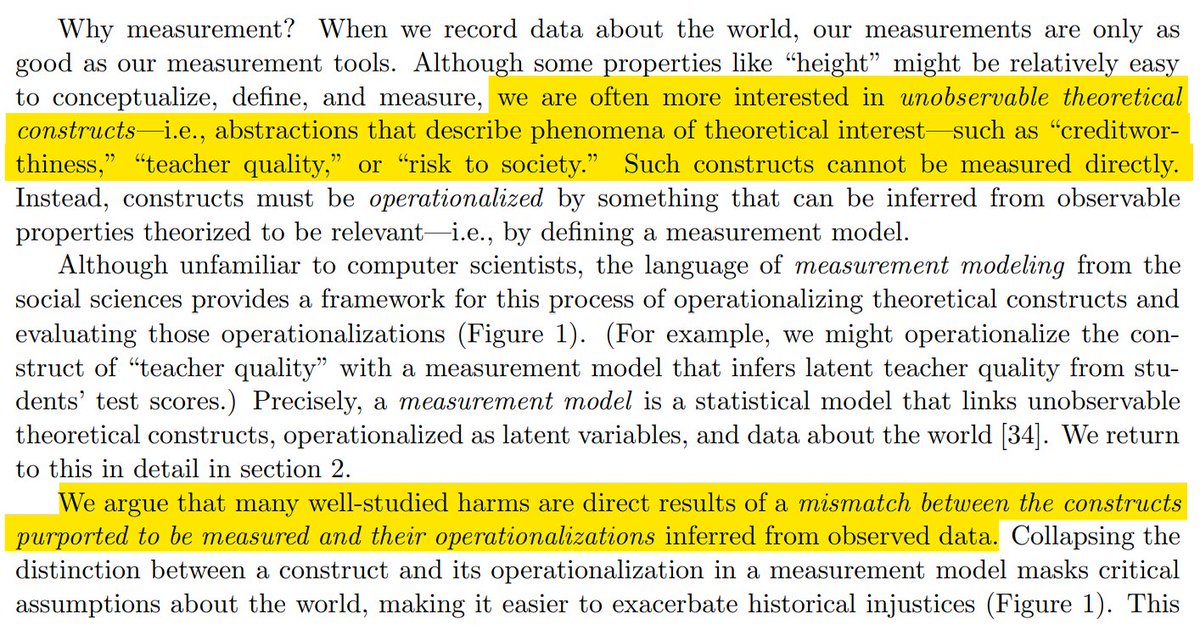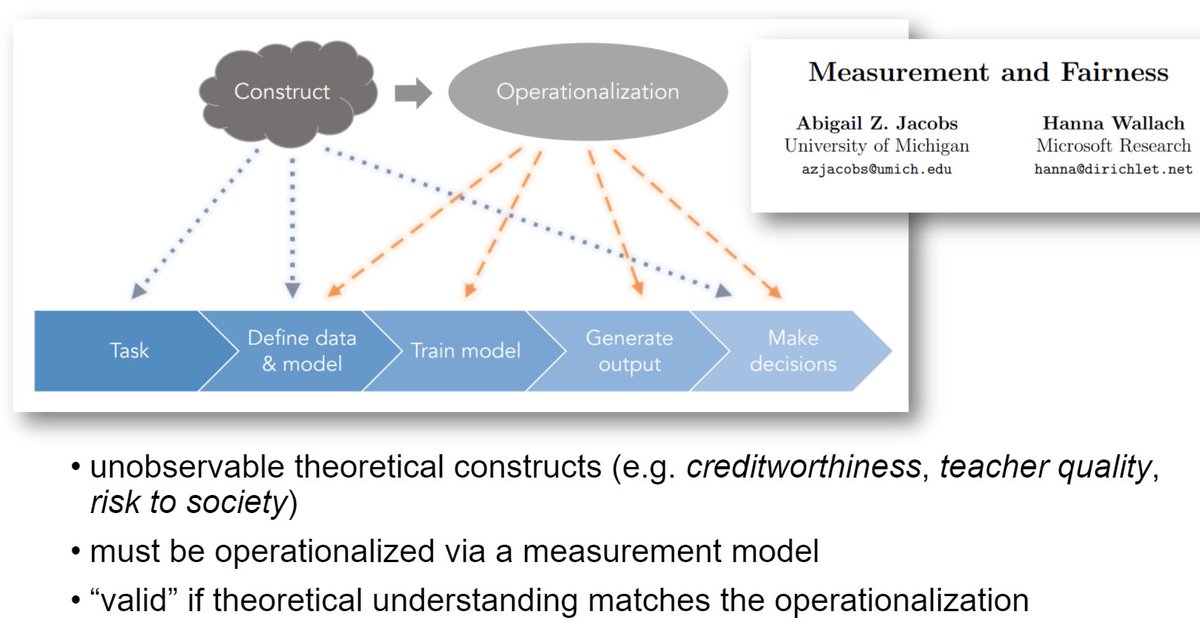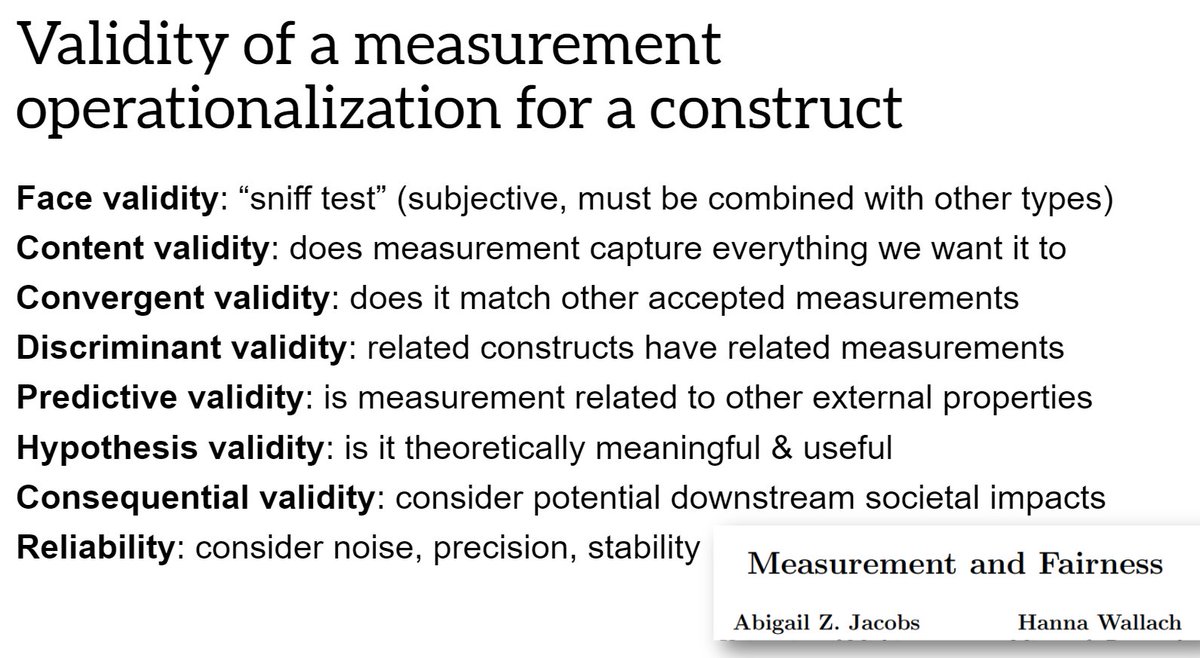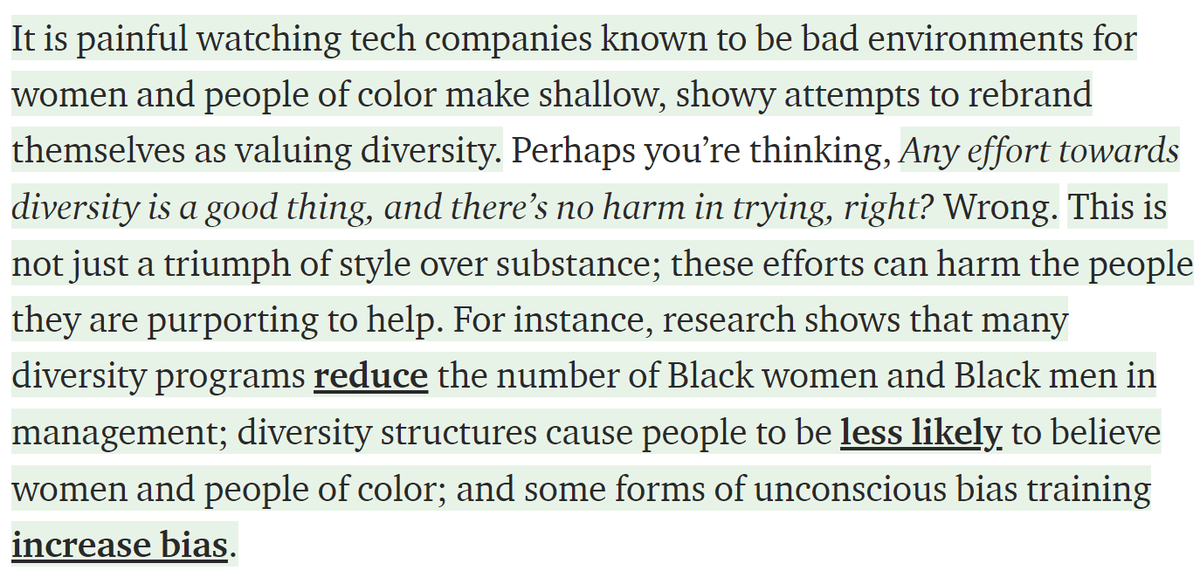
Factors leading to harm & disaster:
- treating simplified models ("abridged maps") as reality
- unscientific optimism of how comprehensive planning will improve life
- authoritarian state
- weakened civil society
@_alialkhatib arguing how "Seeing Like a State" explains AI harms
- treating simplified models ("abridged maps") as reality
- unscientific optimism of how comprehensive planning will improve life
- authoritarian state
- weakened civil society
@_alialkhatib arguing how "Seeing Like a State" explains AI harms

People are obliged to find ways to conform to the patterns found & generated by machine learning algorithms, whether someone fits into their world or not. 

These quotes are from @_alialkhatib #CHI2021 paper "To Live in Their Utopia: Why Algorithmic Systems Create Absurd Outcomes"
ali-alkhatib.com/papers/chi/uto…
ali-alkhatib.com/papers/chi/uto…

• • •
Missing some Tweet in this thread? You can try to
force a refresh










